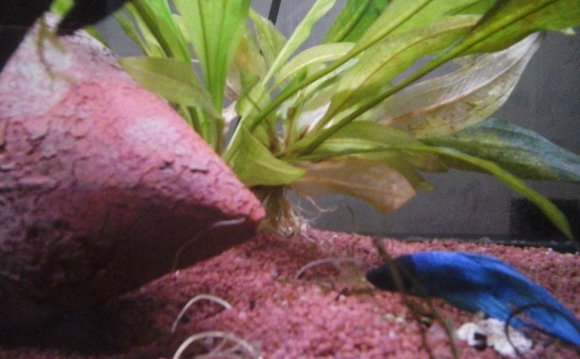
Neon tetras add a flash of color to your tropical aquarium. They have brilliant, horizontal stripes that shine as they swim around. While they are small and relatively low maintenance, tetras are not native to temperate regions, so you must manage their water to maintain proper living conditions for them.
Temperature
Tetras are often classified as tropical fish, but they are actually native to the "neotropic ecozone" of South America, according to Aquatic Community. Neon tetras, as well as closely related species like green neon tetras, thrive in water that is around 75 degrees. The acceptable range includes temperatures slightly below 70 and above 80, although this is not ideal. This water temperature range is acceptable for many decorative fish species, so tetras are suitable for tanks housing multiple fish species.
Salinity
Tetras are freshwater fish, and they will not survive in a saltwater tank. Adding too much aquarium salt to your tank can sicken or kill tetras, so it is important to pay close attention to the ingredient list of water-modifying chemicals. Tetras can live in water with some salt content, but the ideal amount is less than 1 tablespoon per 2 gallons. Wash aquarium decorations in fresh water thoroughly before adding them to a tetra tank if they have ever been in a saltwater system.
Turbulence
Tetras are small fish. They rarely exceed an inch in length, and are a fraction of an inch wide. This means that they are very susceptible to water currents in the tank, and are easily sucked in or against the intake mechanism of the aquarium's circulation equipment. You can house the intake in several layers of screen to prevent the tetras from wandering too close and to disperse the force of suction over a larger area.
Chemical Balance
Like any aquatic organism, tetras are vulnerable to severe chemical imbalances in their tank's water. They prefer a slightly acidic environment with a pH between 5 and 7. They can survive in alkaline water, but they are less likely to breed and are more vulnerable to illness. They also require soft water. Some well and city water sources are hard, which means they contain extra minerals that are not ordinarily found in water supplies. Fish are more sensitive to water hardness than humans or animals, so you may need to soften the water with a filter or chemical additives before filling your tank.









